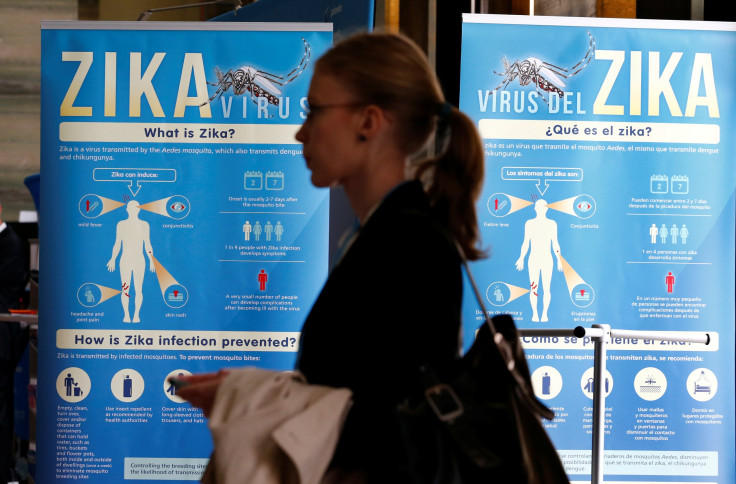Zika Virus In US: Elderly Utah Man May Have Infected Caregiver In Rare Case

An elderly man in Utah who died after contracting the Zika virus may have passed it on to his caregiver, marking the first case in continental United States where a person was infected without having sexual contact or visiting an affected area, health officials said Monday.
Zika is spread primarily through the bite of an infected Aedes aegypti or Aedes albopictus mosquito, which is also responsible for diseases like dengue fever and chikungunya. Almost 80 percent of individuals infected with the Zika virus show no symptoms. The rest tend to experience only mild problems — mild fever, skin rash, conjunctivitis, muscle and joint pain, or headaches — that last for several days.
The Salt Lake County Health Department said Monday that the two people were not sexually involved and the type of tropical mosquito that is known to spread the virus is also not found in the high-altitude area where they live, the Associated Press (AP) reported.
The elderly man died after contracting Zika abroad. His blood had 100,000 times higher amounts of the virus than other infected people, the AP reported citing the Centers for Disease Control and Prevention (CDC). Officials confirmed that the caregiver was a “family contact” but did not reveal further details, citing health privacy laws.
“The new case in Utah is a surprise, showing that we still have more to learn about Zika,” CDC medical epidemiologist Erin Staples said, according to the AP.
The man became the first Zika-related fatality in continental U.S. when he died in late June. However, the exact cause was unclear because of his age and underlying medical condition. Officials have not ruled out the probability that a mosquito returned with him, possibly in a suitcase, from the area where he was exposed to the virus.
“This is a unique situation,” said CDC Director Tom Frieden. “This is the first time where there is a suspected spread of one person to another” beyond sex, the Washington Post reported.
Frieden said that the continental U.S. currently has more than 1,300 cases of Zika caused by travel, and if this type of transmission was not rare, “it’s likely that we would have seen this before.”
The CDC, however, has not revised its advice to healthcare workers or caregivers in the light of the new case. Angela Dunn, deputy state epidemiologist at the Utah Department of Health, reportedly said, “Based on what we know so far about this case, there is no evidence that there is any risk of Zika virus transmission among the general public in Utah.”
© Copyright IBTimes 2024. All rights reserved.












